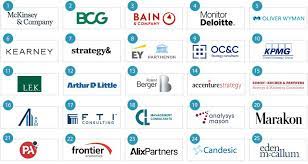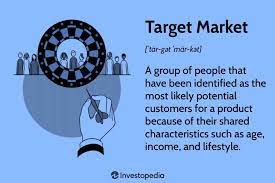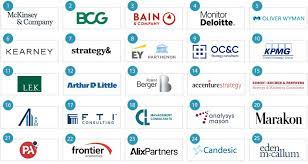Navigating the Path to Success: Understanding the Factors Influencing Consultant Salaries
The world of consulting offers a wide range of opportunities for professionals seeking challenging and rewarding careers. One key aspect that often captures the attention of aspiring consultants is the salary potential within this field. In this article, we will explore the topic of consultant salaries and shed light on the factors that influence them.
First and foremost, it’s important to note that consultant salaries can vary significantly depending on various factors such as industry, experience level, geographic location, and the specific consulting firm. These factors play a crucial role in determining the earning potential of consultants.
Industry specialization is one factor that greatly impacts consultant salaries. Different industries have different demands and complexities, which can affect the value placed on consulting services. For example, management consultants working in industries such as finance or technology tend to command higher salaries due to the specialized knowledge required in these sectors.
Experience level is another critical factor influencing consultant salaries. As with any profession, consultants with more experience typically earn higher salaries. This is because their expertise and track record allow them to bring greater value to clients’ projects. Junior consultants may start with lower salaries but have opportunities for rapid growth as they gain experience and prove their capabilities.
Geographic location also plays a significant role in determining consultant salaries. Consulting firms based in major cities or regions with a high cost of living generally offer higher compensation packages to attract top talent. On the other hand, consultants working in less expensive areas might receive slightly lower salaries.
The reputation and size of the consulting firm are additional factors affecting consultant salaries. Prestigious firms with global recognition often offer higher compensation packages due to their brand reputation and access to high-profile clients. Smaller boutique firms may offer competitive compensation based on their niche expertise or unique service offerings.
It’s worth noting that apart from base salary, many consulting firms provide additional benefits such as performance bonuses, profit-sharing schemes, health insurance coverage, retirement plans, and professional development opportunities. These perks can significantly enhance the overall compensation package and make consulting an attractive career choice.
In conclusion, consultant salaries can vary widely depending on industry specialization, experience level, geographic location, and the consulting firm itself. Aspiring consultants should consider these factors when evaluating potential salary expectations. It’s important to remember that while salary is a significant aspect, a fulfilling career in consulting also offers opportunities for personal growth, professional development, and the chance to work on exciting projects with diverse clients.
Frequently Asked Questions about Consultant Salaries in the UK
- What do NHS consultants earn?
- What is consultant salary?
- What is the highest paid consultant?
- How much is a consultant paid?
- What do consultants do?
- What does an consultant do?
- How much do consultants earn UK?
- Which consultant has highest salary?
- How much do consultants get paid UK?
What do NHS consultants earn?
NHS consultants in the United Kingdom are highly skilled and specialized medical professionals who play a crucial role in providing specialized care and expertise within the National Health Service (NHS). The salary of NHS consultants is determined by various factors, including their experience, specialty, and the specific terms and conditions of their employment.
As of 2021, the basic salary range for NHS consultants in England starts at £82,096 and can go up to £110,683 per year. However, it’s important to note that additional payments can be made based on factors such as clinical excellence awards, on-call duties, and other responsibilities. These additional payments can significantly increase a consultant’s overall earnings.
The salary scale for NHS consultants is structured into different pay bands based on years of experience and seniority. Consultants progress through these bands as they gain more experience and expertise. Each band has a minimum and maximum salary range.
It’s important to highlight that the salary figures mentioned above are for England. The salaries for NHS consultants in Scotland, Wales, and Northern Ireland may have slight variations due to regional differences in pay scales.
Furthermore, it’s worth noting that consultant salaries are reviewed periodically by the government and relevant bodies to ensure they remain competitive with other sectors. These reviews aim to attract and retain talented medical professionals within the NHS.
In addition to their base salaries, NHS consultants also receive benefits such as pension schemes, paid annual leave, sick leave entitlements, professional development opportunities, and access to various healthcare benefits.
It’s essential to consult official sources or refer to specific NHS guidelines for the most up-to-date information regarding consultant salaries as they may change over time due to negotiations or revisions in pay structures.
Overall, while NHS consultant salaries are competitive compared to many other professions, it is important to recognize that these medical professionals undertake significant responsibilities in delivering high-quality healthcare services within the UK’s public health system.
What is consultant salary?
A consultant salary refers to the amount of money that a consultant earns for their services. Consultants are professionals who provide expert advice and guidance to businesses or individuals in a particular field. They are hired on a temporary basis to solve specific problems, improve processes, or provide specialized knowledge.
The salary of a consultant can vary greatly depending on several factors. These factors include the industry in which they work, their level of experience, geographic location, the specific consulting firm they work for (if applicable), and the demand for their expertise.
Consultant salaries can range from moderate to high levels depending on these factors. Consultants with extensive experience and expertise in high-demand industries such as finance or technology often command higher salaries due to the value they bring to clients.
Geographic location is also a significant factor in determining consultant salaries. Consulting firms based in major cities or regions with a high cost of living generally offer higher compensation packages to attract top talent. On the other hand, consultants working in less expensive areas might receive slightly lower salaries.
The reputation and size of the consulting firm can also influence consultant salaries. Well-established and prestigious consulting firms with global recognition often offer higher compensation packages due to their brand reputation and access to high-profile clients. Smaller boutique firms may offer competitive compensation based on their niche expertise or unique service offerings.
It’s important to note that consultant salaries are not limited to just base pay. Many consulting firms provide additional benefits such as performance bonuses, profit-sharing schemes, health insurance coverage, retirement plans, and professional development opportunities. These perks can significantly enhance the overall compensation package.
Overall, consultant salaries can vary widely depending on industry specialization, experience level, geographic location, and the consulting firm itself. It’s important for individuals considering a career in consulting to research and understand these factors when evaluating potential salary expectations.
What is the highest paid consultant?
The highest-paid consultant roles can vary depending on the industry and specific expertise. However, some of the highest-paying consulting positions are often found in fields such as management consulting, strategy consulting, and specialized technical consulting.
In management consulting, top-tier partners in renowned firms can command exceptionally high salaries. These partners often have extensive experience, a proven track record of delivering successful projects, and the ability to generate significant revenue for their firms. Their compensation can include a combination of base salary, performance bonuses, profit-sharing, and other incentives.
Strategy consultants also tend to earn high salaries due to their expertise in advising companies on long-term planning and growth strategies. These professionals often work closely with top executives and board members to guide critical business decisions. Their compensation reflects their strategic insights and ability to drive tangible results for their clients.
Specialized technical consultants with expertise in areas such as IT consulting, cybersecurity, or healthcare consulting can also earn substantial salaries. These consultants possess highly sought-after skills that are in high demand due to the complexity of the subject matter. Their deep knowledge and ability to provide innovative solutions make them valuable assets for organizations.
It’s important to note that while these roles generally offer higher salaries, they also come with significant responsibilities and expectations. Achieving such positions often requires years of experience, a strong professional network, exceptional skills, and a proven track record of success.
Ultimately, the highest-paid consultant roles are typically those that require a unique combination of expertise, experience, and the ability to drive transformative change for clients or organizations.
How much is a consultant paid?
The salary of a consultant can vary greatly depending on several factors. These factors include the industry, level of experience, geographic location, and the specific consulting firm or organization.
In terms of industry, certain sectors such as finance, technology, and healthcare tend to offer higher salaries for consultants due to the specialized knowledge and skills required in these fields. On the other hand, industries with lower demand for consulting services may have lower average salaries.
Experience level is another crucial factor in determining a consultant’s salary. Entry-level or junior consultants typically earn less than those with more experience. As consultants gain expertise and successfully complete projects, their earning potential tends to increase.
Geographic location also plays a significant role in consultant salaries. Major cities or regions with a higher cost of living often offer higher compensation to account for the increased expenses. In contrast, areas with a lower cost of living may have lower average salaries for consultants.
The consulting firm or organization itself can greatly influence salary levels. Prestigious global firms often offer higher compensation packages due to their brand reputation and access to high-profile clients. Smaller boutique firms may provide competitive salaries based on their niche expertise or unique service offerings.
It is important to note that specific salary figures can vary widely even within these considerations. According to various sources and surveys, entry-level consultants may earn around £25,000-£45,000 per year in the UK (figures are approximate and subject to change). Mid-level consultants with several years of experience can expect salaries ranging from £45,000-£80,000 per year. Senior-level consultants or partners at top consulting firms can earn well into six figures or more annually.
It’s worth mentioning that in addition to base salary, many consulting firms also provide performance bonuses, profit-sharing schemes, health insurance coverage, retirement plans, and other benefits that can significantly enhance overall compensation.
Keep in mind that these figures are general estimates and can vary depending on individual circumstances and the factors mentioned above. It is advisable to research industry-specific salary data, consult job postings, and consider multiple sources to get a more accurate understanding of consultant salaries in a particular field or location.
What do consultants do?
Consultants are professionals who provide expert advice and guidance to businesses, organizations, or individuals in specific areas of expertise. They are hired to address specific challenges, improve performance, or achieve specific goals. The scope of a consultant’s work can vary depending on their field of specialization and the needs of their clients. Here are some common tasks and responsibilities that consultants typically undertake:
- Assessing and analyzing: Consultants often begin by evaluating the current situation or problem faced by their client. They conduct thorough research, gather data, analyze processes, and identify areas for improvement.
- Providing recommendations: Based on their analysis, consultants develop recommendations and strategies to address the identified issues. They present these suggestions to their clients in a clear and actionable manner.
- Developing plans: Consultants assist in creating detailed action plans that outline the steps required to implement recommended changes or achieve specific goals. These plans may include timelines, resource allocation, and performance indicators.
- Implementing solutions: Consultants may be involved in implementing the recommended changes themselves or working closely with the client’s team to ensure successful execution of the proposed strategies.
- Training and coaching: In some cases, consultants provide training sessions or workshops to enhance the skills of employees within an organization or transfer knowledge related to their area of expertise.
- Conducting research: Consultants often stay updated on industry trends and best practices through ongoing research. This allows them to offer innovative solutions that align with current market conditions.
- Providing expertise: Consultants bring specialized knowledge and experience in their respective fields that may not be available internally within an organization. They offer insights, advice, and guidance based on their expertise.
- Project management: Consultants may oversee projects from start to finish, ensuring that objectives are met within budgetary constraints and timeframes.
- Offering objective perspectives: As external experts, consultants provide an impartial viewpoint on organizational challenges or decisions without being influenced by internal biases or politics.
- Monitoring and evaluation: Consultants often track the progress and effectiveness of their recommendations, measuring results against established goals. They provide feedback and make adjustments as needed to ensure continuous improvement.
It’s important to note that consultants can specialize in various areas such as management, finance, marketing, human resources, IT, strategy, or specific industries. Their expertise allows them to offer valuable insights and solutions tailored to the unique needs of their clients.
What does an consultant do?
Consultants are professionals who provide expert advice, guidance, and solutions to businesses and organizations. They are hired to address specific challenges, improve performance, and help clients achieve their goals. The role of a consultant can vary depending on the industry and specialization, but here are some common tasks and responsibilities:
- Assessing and analyzing: Consultants conduct thorough assessments of a client’s business operations, processes, or specific areas of concern. They gather data, analyze information, identify strengths and weaknesses, and evaluate opportunities for improvement.
- Providing recommendations: Based on their analysis, consultants offer recommendations and strategic advice to address the identified challenges or achieve specific objectives. These recommendations could involve changes in processes, organizational structure, technology implementation, or any other relevant area.
- Developing strategies: Consultants work with clients to develop tailored strategies that align with their goals. This can include market entry strategies, growth plans, cost reduction strategies, marketing campaigns, or any other strategic initiative required.
- Implementing solutions: Consultants often assist in implementing the recommended solutions by working closely with the client’s team members. They provide guidance on best practices, help develop action plans, monitor progress, and ensure effective execution of strategies.
- Conducting research: Consultants may conduct market research or industry analysis to provide insights into market trends, customer behavior patterns, competitive landscape evaluation, or any other relevant research needed by the client.
- Facilitating change management: Consultants play a crucial role in managing organizational change resulting from their recommendations or strategy implementation. They help communicate changes to stakeholders effectively and support employees through transitions.
- Training and development: Depending on the project scope or client needs, consultants may deliver training programs to enhance employee skills in specific areas such as leadership development or process improvement.
- Providing expertise: Consultants bring specialized knowledge and expertise in their respective fields to guide clients through complex issues or industry-specific challenges. Their experience allows them to offer unique perspectives and insights.
- Building relationships: Consultants often establish strong working relationships with clients, becoming trusted advisors. They maintain open lines of communication, provide ongoing support, and offer guidance beyond the initial project scope.
It’s important to note that consultants work in various industries and can specialize in different areas such as management consulting, IT consulting, financial consulting, marketing consulting, or human resources consulting. The specific tasks and responsibilities may vary based on the consultant’s expertise and the client’s requirements.
How much do consultants earn UK?
The earning potential for consultants in the UK can vary depending on several factors. On average, management consultants in the UK can expect to earn a starting salary of around £30,000 to £40,000 per year. However, it’s important to note that this is a broad estimate and salaries can vary significantly based on factors such as industry specialization, experience level, geographic location, and the consulting firm.
As consultants gain experience and progress in their careers, their earning potential typically increases. Experienced consultants with several years of experience can earn salaries ranging from £60,000 to £100,000 or more per year. Senior-level consultants or those with specialized expertise may command even higher salaries.
Industry specialization plays a significant role in determining consultant salaries. Consultants working in industries such as finance, technology, or healthcare often have higher earning potential due to the specialized knowledge and skills required in these sectors.
Geographic location is another factor that affects consultant salaries. Consulting firms based in major cities like London tend to offer higher compensation packages due to the higher cost of living in these areas. On the other hand, consultants working in smaller cities or regions with a lower cost of living might receive slightly lower salaries.
It’s important to note that these figures are general estimates and individual circumstances may vary. Additionally, many consulting firms offer performance-based bonuses and additional benefits that can significantly enhance the overall compensation package.
Ultimately, the earning potential for consultants in the UK is influenced by multiple factors including industry specialization, experience level, geographic location, and the specific consulting firm. As with any profession, it’s essential for individuals considering a career in consulting to research and evaluate different opportunities to get a better understanding of salary expectations within their chosen field.
Which consultant has highest salary?
The highest-paid consultants can vary depending on several factors, including the industry they specialize in, their level of experience, and the specific consulting firm they work for. However, some types of consultants tend to command higher salaries on average compared to others. Here are a few examples:
- Management Consultants: Management consultants, particularly those working in prestigious firms or with extensive experience, often earn high salaries. They provide strategic advice to businesses and help improve overall performance and efficiency.
- IT Consultants: With the increasing reliance on technology in today’s business landscape, IT consultants who specialize in areas such as cybersecurity, cloud computing, or data analytics are in high demand. Their expertise can command significant compensation.
- Finance Consultants: Finance consultants who work with financial institutions, investment firms, or provide advisory services on complex financial matters often earn substantial salaries due to the specialized knowledge and expertise required in this field.
- Healthcare Consultants: The healthcare industry has unique challenges and complexities that require specialized consulting services. Healthcare consultants who provide strategic guidance on areas such as healthcare management, regulatory compliance, or healthcare IT solutions can earn competitive salaries.
- Legal Consultants: Legal consultants who offer specialized legal advice to businesses or individuals often command high fees for their expertise. They may assist with legal strategy, contract negotiation, compliance issues, or litigation support.
It’s important to note that while these types of consultants may have the potential for higher salaries on average, individual earnings can still vary greatly depending on factors such as experience level, geographic location, reputation within the industry, and the specific consulting firm they work for.
Ultimately, it is crucial for aspiring consultants to consider their own interests and strengths when choosing a consulting career path rather than focusing solely on potential salary figures. A fulfilling and successful career often comes from aligning one’s skills and passions with an area of consulting that offers personal satisfaction along with financial rewards.
How much do consultants get paid UK?
Consultant salaries in the UK can vary depending on several factors, including industry, experience level, and the specific consulting firm. According to data from various sources, the average salary for a management consultant in the UK ranges from £40,000 to £100,000 per year.
For entry-level or junior consultants with limited experience, salaries typically start at around £40,000 to £50,000 per year. As consultants gain more experience and expertise, their earning potential increases. Mid-level consultants with a few years of experience can expect salaries ranging from £60,000 to £80,000 per year.
Senior or principal consultants who have established themselves as experts in their field can earn significantly higher salaries. Their annual earnings can range from £80,000 to £100,000 or more.
It’s important to note that these figures are approximate and can vary depending on factors such as the size and reputation of the consulting firm and the specific industry in which they operate. Additionally, top-tier consulting firms may offer higher salaries compared to smaller boutique firms.
In addition to base salary, many consulting firms offer performance-based bonuses and other benefits such as profit-sharing schemes or health insurance coverage. These additional perks can significantly enhance the overall compensation package for consultants.
It’s worth mentioning that these figures are general estimates and may not reflect individual circumstances or variations within specific industries or firms. It’s always recommended to research salary ranges specific to your desired industry and consult reliable sources or job market reports for accurate information.












